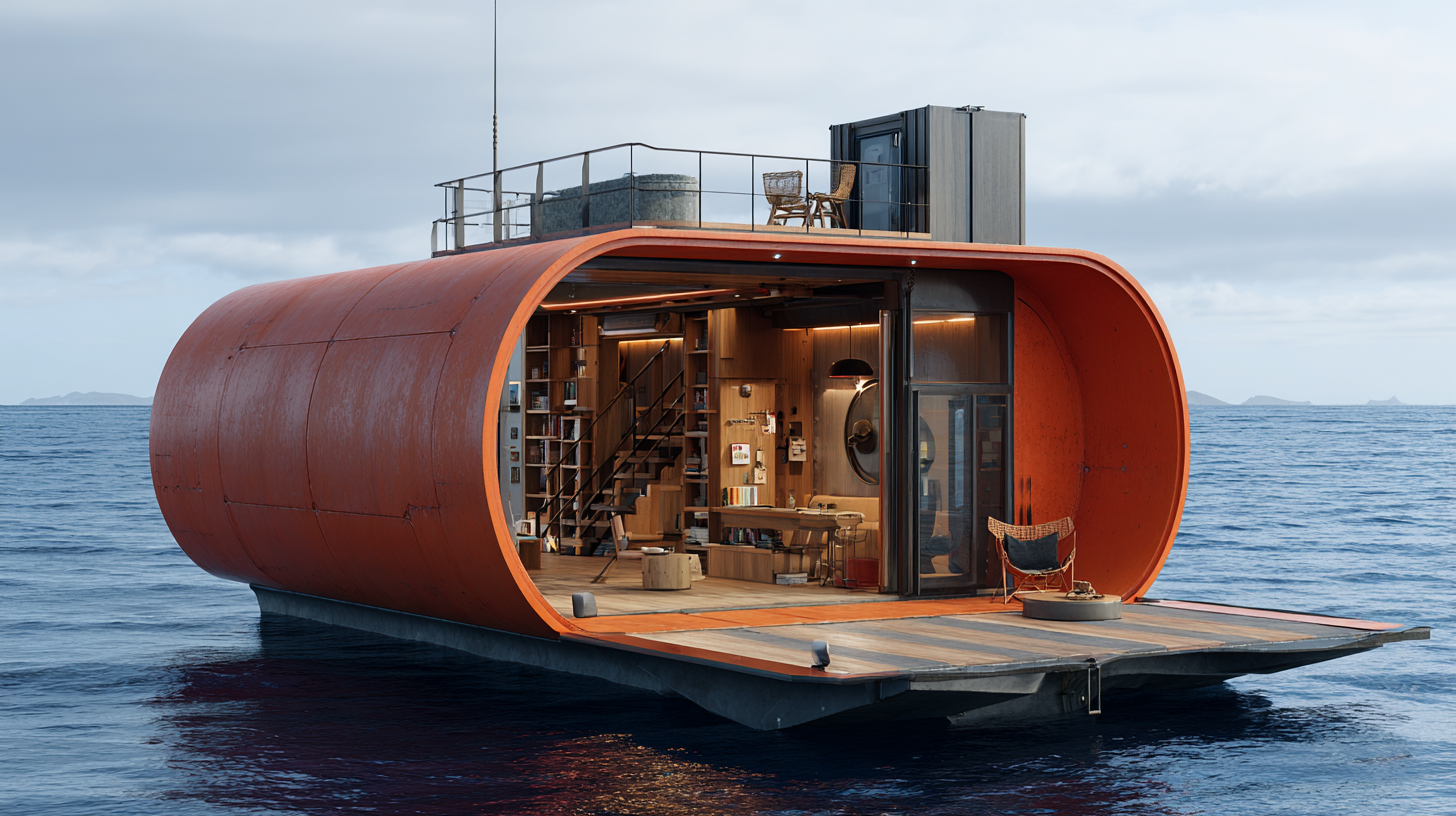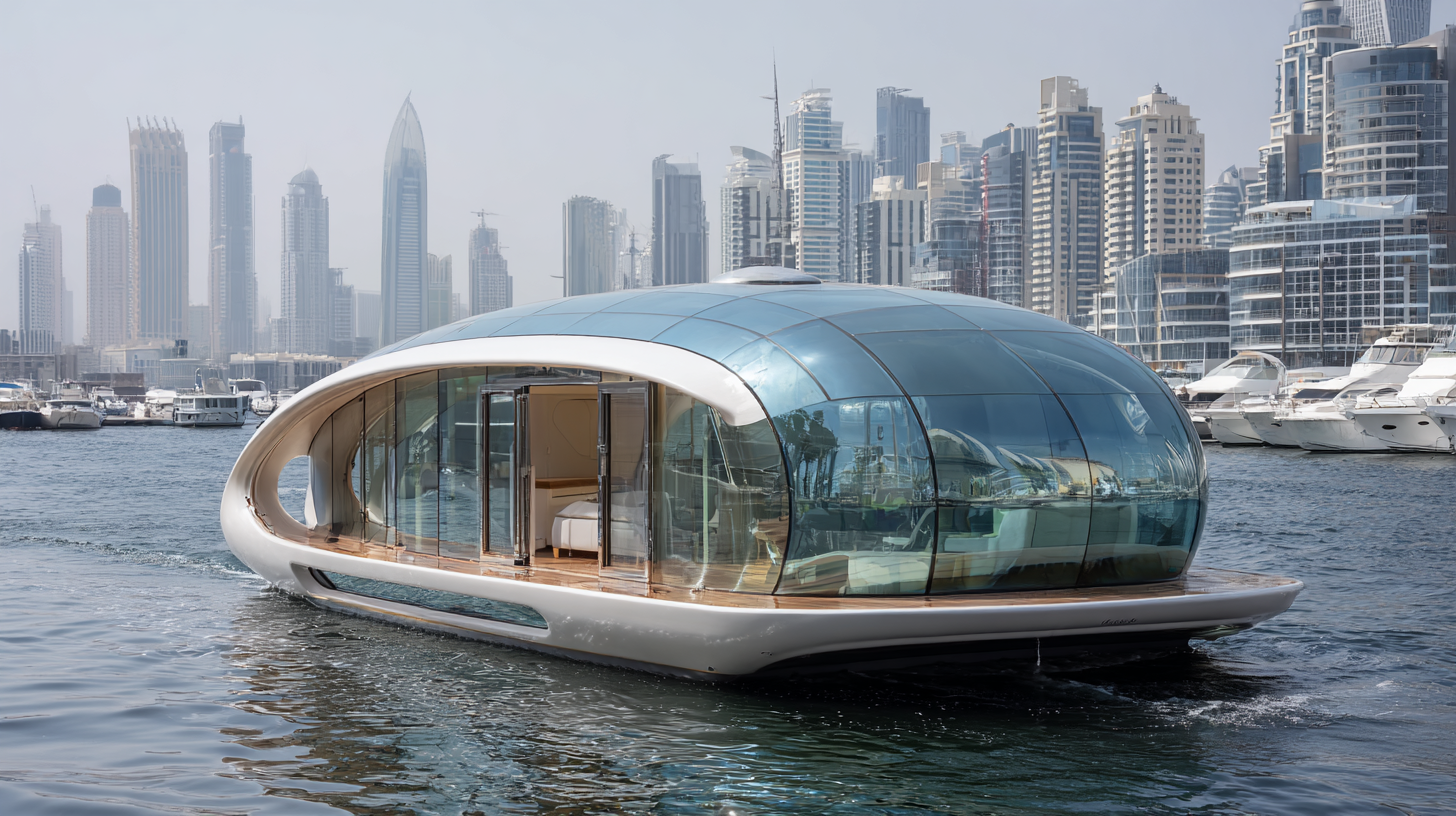
News
Navigating Import Export Certifications for Best Vessel Capsule House Purchases Globally
In the rapidly evolving landscape of global trade, the demand for innovative living solutions such as the Vessel Capsule House has surged remarkably. According to a recent market research report by Grand View Research, the global modular housing market is projected to reach USD 90.3 billion by 2027, growing at a CAGR of 7.3%.

However, navigating the complex web of import-export certifications poses significant challenges for businesses looking to capitalize on this burgeoning sector. Common issues include compliance with diverse regulatory requirements, ensuring product safety, and understanding local market standards.
As companies seek to streamline their operations and enhance product offerings, addressing these problems effectively is paramount for unlocking the full potential of Vessel Capsule House purchases globally.
Understanding the Importance of Import Export Certifications in Vessel Capsule House Transactions
When engaging in vessel capsule house transactions globally, understanding the importance of import-export certifications is critical. These certifications serve as a guarantee that the vessels comply with international safety and quality standards. For buyers, this can mean the difference between a reliable investment and a potential financial risk. Without proper documentation, buyers may face regulatory challenges or financial loss due to consignment delays or penalties.
Additionally, import-export certifications simplify the customs process and make cross-border transactions more efficient. They provide verification that the products meet the necessary health, safety, and environmental regulations in the destination country. For sellers, having these certifications can enhance their credibility and open the door to international markets. In a world increasingly focused on sustainability and compliance, holding relevant certifications can distinguish one’s offerings and foster trust with potential buyers.
Key Certifications Required for International Import Export of Vessel Capsule Houses
Navigating the complex landscape of import-export certifications is essential for securing the best vessel capsule house purchases in the global market. As of 2023, data indicates that nearly 64% of international transactions are subject to regulatory approvals and certifications, underlining the importance of understanding these requirements. Key certifications such as the ISO 9001 for quality management systems and CE marking for compliance with European standards are critical for ensuring that vessel capsule houses meet safety and quality expectations, facilitating smoother cross-border transactions.
Furthermore, countries may have specific documentation requirements, such as the Certificate of Origin or the Import License, depending on their regulatory frameworks. In the context of global trade, the World Trade Organization reported that simplifying import-export procedures can reduce transaction costs by up to 15%, making compliance with these certifications even more essential for businesses looking to capitalize on the growing demand for innovative housing solutions, like vessel capsule houses. This emphasizes the necessity for importers and exporters to stay updated on certification requirements to remain competitive in this burgeoning market.
Identifying Reliable Suppliers: Key Criteria and Industry Best Practices
When it comes to procuring vessel capsules for housing, identifying reliable suppliers is paramount. A thorough understanding of the import-export certification process serves as a foundation for establishing trust and ensuring compliance. Suppliers should possess up-to-date certifications that confirm their adherence to international standards, particularly those related to safety and environmental regulations. It’s crucial to verify these certifications before making any commitments, as they reflect the supplier's credibility and the quality of their products.
In addition to certifications, other key criteria should be evaluated when selecting a supplier. Transparency in operations—such as clear communication regarding lead times, pricing, and shipping details—is vital for fostering a robust partnership. Additionally, it is wise to seek suppliers with a strong track record and positive reviews from previous clients. Engaging in direct communication and asking for references can provide further assurance of reliability. By adhering to these industry best practices, buyers can streamline their purchasing process and rest assured they are investing in quality and compliance.
Navigating Import Export Certifications for Best Vessel Capsule House Purchases Globally - Identifying Reliable Suppliers: Key Criteria and Industry Best Practices
| Supplier Location | Certification Type | Quality Standards | Lead Time (Days) | Customer Ratings |
|---|---|---|---|---|
| North America | ISO 9001 | ASTM, CE | 30 | 4.5/5 |
| Europe | CE Marking | ISO 14001 | 45 | 4.7/5 |
| Asia | ISO 14001 | BIS | 60 | 4.2/5 |
| South America | ISO 9001 | INMETRO | 50 | 4.0/5 |
| Africa | ISO 45001 | SANS | 70 | 3.8/5 |
Navigating Compliance Challenges in Global Vessel Capsule House Purchases
Navigating compliance challenges in global vessel capsule house purchases can be a complex endeavor. As the popularity of vessel capsule houses rises, so too does the regulatory scrutiny surrounding their import and export. Each country has specific certifications and standards that must be met, which can vary significantly depending on local laws and international agreements. Importers and exporters must familiarize themselves with these requirements to ensure that their products not only meet safety and quality standards but also align with environmental regulations that are becoming increasingly stringent around the world.

Additionally, staying abreast of changing regulations is crucial. Many businesses underestimate the impact of compliance on their operations, leading to potential delays, fines, or even the rejection of shipments. This highlights the importance of working closely with legal experts in international trade who can provide guidance on necessary certifications, including safety assessments and environmental impact evaluations. By prioritizing compliance from the outset, businesses can facilitate smoother transactions and foster stronger relationships with global partners, ultimately enhancing their reputation in the burgeoning market for vessel capsule houses.
Case Studies: Successful Imports of Vessel Capsule Houses with Certification Considerations
In recent years, the popularity of vessel capsule houses has surged globally, attracting eco-conscious consumers and innovative developers alike. However, navigating the complex landscape of import-export certifications is crucial for ensuring these unique structures meet both local and international standards. Case studies reveal that successful imports often hinge on understanding certification requirements specific to the target country, including safety, environmental, and quality assessments. For instance, a project in New Zealand faced challenges with compliance; however, with thorough research into local regulations and timely adjustments, the importation process was streamlined, ultimately leading to a successful launch.

Another example comes from a venture in the European Union, where varied national regulations posed a significant challenge. By collaborating with local experts, the company was able to accurately interpret the certification landscape, which allowed them to secure the necessary approvals well in advance. Their proactive approach not only facilitated a smoother import process but also ensured that the vessel capsule houses resonated with the market's demand for sustainability and modern design. These case studies highlight that successful imports of vessel capsule houses depend on meticulous planning and a deep understanding of certification requirements, reinforcing the idea that due diligence is key to global expansion in this niche market.
